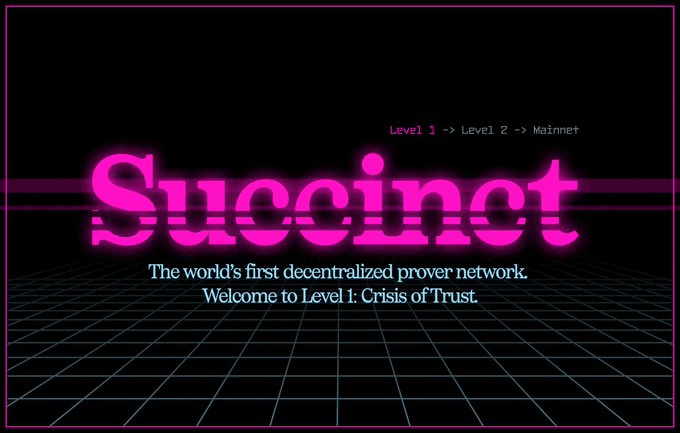
Recently, Succinct proposed the concept of ZK co-processors, which I think is particularly worth discussing. It essentially addresses a fundamental contradiction in blockchain: on-chain resources are limited, yet the demand for complex computations from applications continues to grow. The traditional approach either sacrifices performance or introduces trusted intermediaries, whereas Succinct offers a third path—executing computations off-chain and then bringing verifiable results back on-chain through zero-knowledge proofs.
This model is quite imaginative. It means that high-complexity tasks, such as AI inference, financial model calculations, and game logic, can now potentially be realized while minimizing trust in the blockchain. For instance, if you have a DeFi protocol that wants to perform complex risk pricing or a blockchain game that wishes to introduce real-time physical simulations, Succinct's ZK co-processor could serve as that 'external brain'—not only saving on main chain resources but also ensuring the trustworthiness of the computation process.
Technically, Succinct relies on their developed SP1 zkVM. Developers can write code using mainstream languages like Rust without needing to learn cryptography from scratch, lowering the entry barrier. Moreover, SP1 is 30 times faster than traditional zkVMs and can provide real-time proofs for Ethereum blocks, making its performance advantages quite evident. Additionally, the off-chain proof generation network's bidding mechanism helps keep costs relatively low.
Ecosystem data also supports its appeal. By 2025, Succinct is expected to support over 35 protocols, with a secured asset scale reaching 4 billion dollars, indicating that the market is indeed buying in. Its positioning is not to create another zkEVM but to focus more on the 'co-processor' scenario, effectively becoming an efficient complement to the EVM, which is a very clear vision.
The token $PROVE plays several roles in the entire system: generating payment proof costs, staking nodes to maintain network security, and community governance. This design ties together technical requirements and economic models, aligning well with the play of decentralized infrastructure.
In the long run, I believe Succinct's value lies in expanding the capability boundaries of blockchain. It prevents applications from being trapped in the dilemma of 'is it feasible on-chain,' instead providing a new paradigm—complex computations can be outsourced, but trust does not need to be compromised. As on-chain application scenarios become more diverse, this 'verifiable off-chain computation' may turn into a necessity.
Of course, ZK technology itself is still rapidly iterating, and Succinct also needs to continuously optimize core capabilities like multilinear proofs and cross-chain support. But if it can indeed become the 'default computation layer' in Web3 development, then its potential transcends mere technical experiments; it could truly support the infrastructure for the next generation of high-complexity applications.

